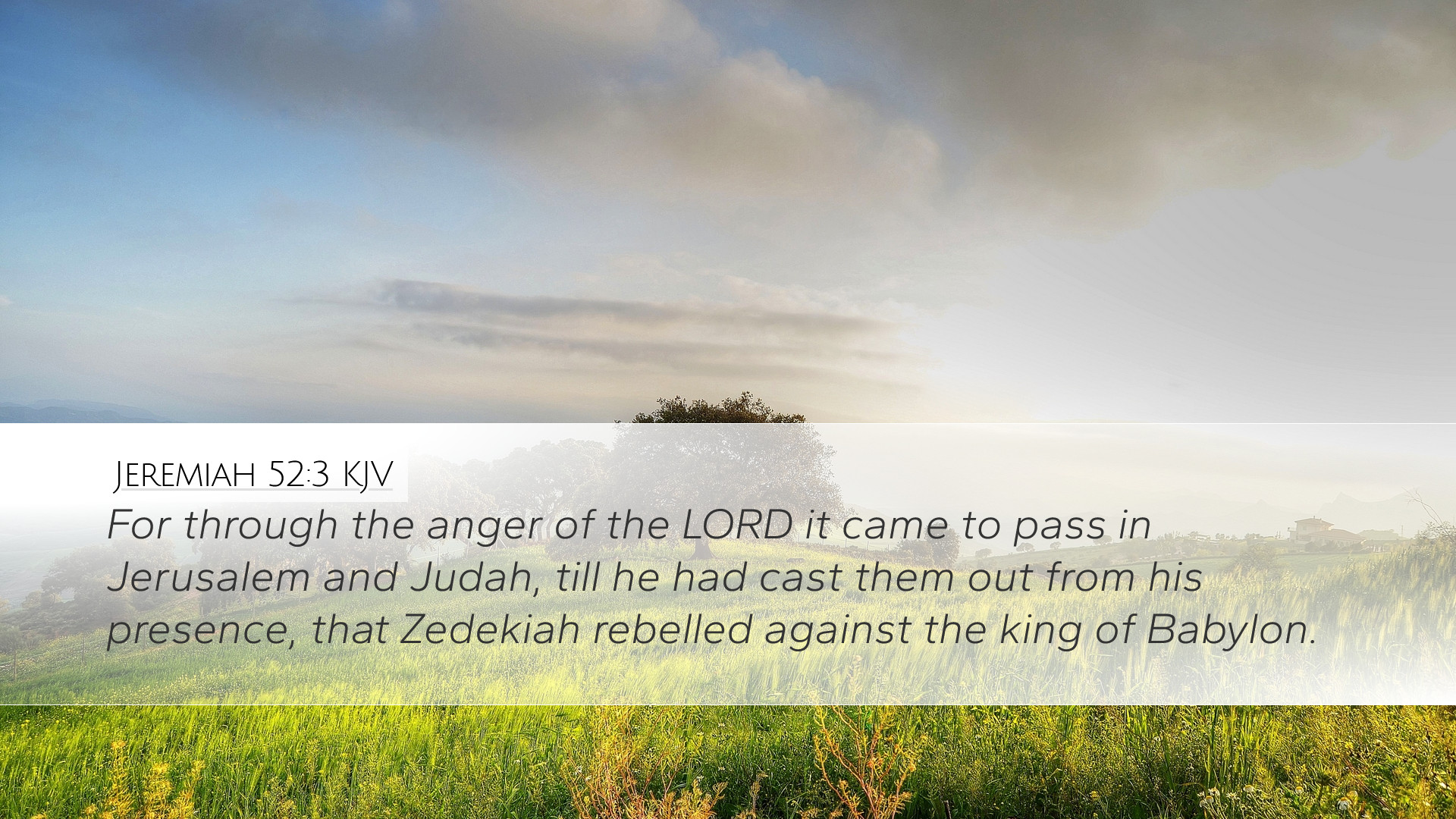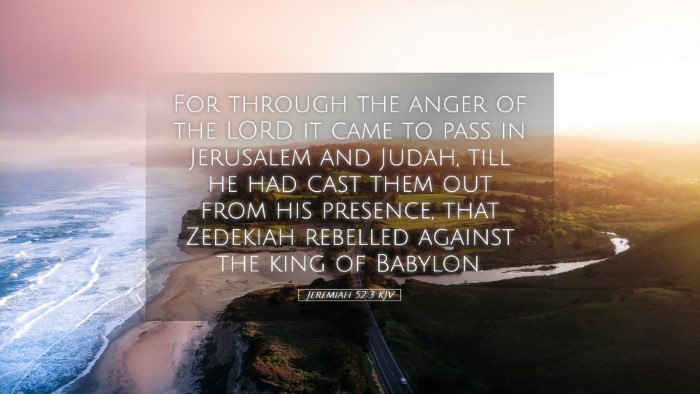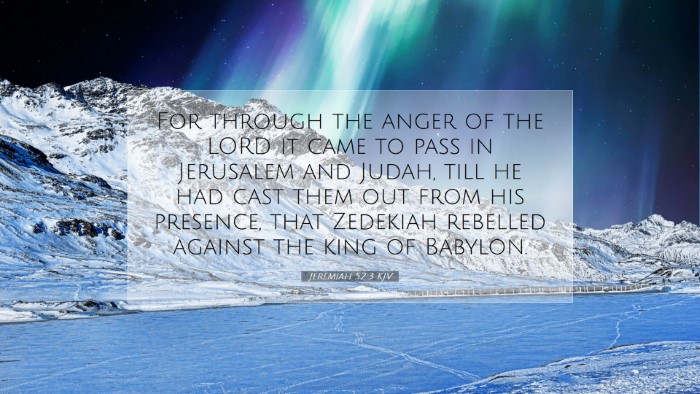Commentary on Jeremiah 52:3
Bible Verse: "For through the anger of the Lord it came to pass in Jerusalem and Judah until he had cast them out from his presence, that Zedekiah rebelled against the king of Babylon."
Introduction
This verse serves as a poignant conclusion to the Book of Jeremiah, encapsulating the tragic fate of Jerusalem and its leaders. The verse not only reflects the consequences of disobedience to God but also highlights the sovereignty of God in human affairs. It illustrates the demise of Zedekiah's reign and the broader national crisis that Israel faced as a result of their unfaithfulness to Yahweh. In examining this verse, we draw from the insights of esteemed public domain commentaries including those of Matthew Henry, Albert Barnes, and Adam Clarke.
Context and Significance
Jeremiah 52 stands at the conclusion of a narrative that underscores a profound national disaster for Judah. The historical context surrounding this verse is crucial. Zedekiah, the last king of Judah, is depicted as a man who, despite being warned by prophets, chose rebellion against Nebuchadnezzar, the king of Babylon. This escalation leads to catastrophic consequences.
Historical Background
Matthew Henry elaborates on the dire scenario of Judah under Zedekiah's leadership. He describes how Zedekiah's rebellion was not merely a personal failure but was reflective of the collective spiritual disobedience of the nation. The people had long turned away from God, leading to their eventual downfall.
Theological Reflections
Albert Barnes emphasizes the theme of divine judgment that permeates the Old Testament. He explains that God’s anger manifests through the historical events unfolding in Jerusalem. It serves as a reminder that continual disregard for God's commandments ultimately results in severe repercussions, as witnessed through the exile of His chosen people.
Exegesis of Key Phrases
Examining the text closely, several phrases warrant deeper reflection.
- “the anger of the Lord” - This phrase signifies the seriousness of God's displeasure towards His people. Adam Clarke notes that God's anger is not arbitrary but a just response to the people's transgressions. It acts as a divine correction.
- “cast them out from his presence” - This indicates profound separation from God. Barnes remarks that exile is the ultimate consequence of covenant unfaithfulness, where the people were not only removed from their land but from the protective presence of God Himself.
- “Zedekiah rebelled” - Zedekiah's rebellion is emblematic of human pride and defiance against divine authority. Henry posits that Zedekiah’s actions can be interpreted as a failure to heed God’s prophetic warnings, ultimately illustrating a tragic example of hubris.
Lessons for Today
For contemporary pastors, theologians, and students of Scripture, Jeremiah 52:3 highlights several critical lessons:
- The importance of obedience: The text starkly reminds believers of the fragility of their relationship with God, hinging upon obedience to His will. Just as ancient Israel faced dire consequences for rebellion, so too do modern believers face spiritual peril when shunning God's directions.
- Covenant fidelity: This verse reinforces the relevance of covenant commitments in our relationship with God. As Clarke points out, the covenant is defined not only by blessings but also by responsibilities, emphasizing our role and accountability within the divine framework.
- God's Sovereignty: Reflecting on the sovereignty of God amid human actions becomes evident. Despite Zedekiah’s rebellion, God’s plan unfolds, reminding us that His purposes prevail regardless of human failures. Thus, the verse invites believers to trust in God's overarching plan.
Conclusion
Jeremiah 52:3 stands as both a warning and a source of profound theological reflection. The fate of Zedekiah and the people of Judah embodies critical truths about divine judgment, human responsibility, and the unending grace of God, even in times of crisis. As we engage with this text, we are beckoned to a deeper understanding of not only the historical context but also the living implications for our own faith journeys.


